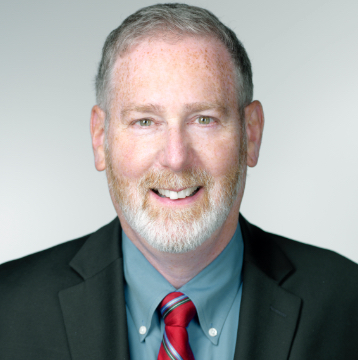This summer’s Canadian wildfires caused Chicagoans to endure days of the worst air quality in the world. The recent flooding from severe storms damaged homes in many Chicago communities. Meanwhile, record-high temperatures and droughts are affecting broad swaths of our country.
Sadly, Midwestern scientists tell us that there will be more to follow: more extreme weather and temperature events; destructive wildfires, hurricanes and tornadoes; floods and droughts; and more extreme variations in Lake Michigan water levels, mostly higher, sometimes lower, whipped up by high winds and heavy waves that batter the shoreline’s built environment.
So, what can we do to make a difference? Let’s step up and accelerate these six actions in the Chicago region:
1. Lead by example and do our share to reduce carbon pollution by installing solar energy plus storage on homes and buildings across Chicagoland. These distributed energy resources avoid pollution, lighten the load on the electricity grid and boost climate resilience. They make electricity less dependent on distant large generating plants and vulnerable high-voltage transmission lines that are strained by icy cold winter weather and hot summer conditions, as well as by derechos and tornadoes.
2. Implement a full-scale assault on energy waste by making Chicago-area homes and buildings more energy-efficient by using smart technologies that achieve significant savings. That’s the best, least expensive and fastest climate change solution. Energy efficiency saves money for people and businesses on their utility bills, reduces pollution, creates installation jobs and keeps money in our economy that would otherwise be drained by fuel costs paid for coal, gas and uranium through utility rate charges. That’s a win-win.
3. Increase public investment in public transit to improve CTA, Metra and Pace operations. This will increase ridership and mobility options while lessening dependence on car travel. The transportation sector is now the largest source of carbon pollution causing climate change problems. If Chicagoland doesn’t have public transit that works well, then we won’t have a “green city that works.”
4. Build out a modern electric vehicle charging infrastructure quickly and efficiently that solves the “chicken-and-egg” problem for accelerating EV purchases by more car and truck buyers. Just as important, combine the EV charging system with renewable energy generation (solar and wind power) so that drivers are charging their green cars with green energy, not brown energy from fossil fuel-generating plants.
5. Rethink the built environment along the Lake Michigan shoreline. Climate change is causing more extreme water levels combined with more intense storm winds and waves that are hammering beaches, bike paths and apartment buildings from Zion to the Indiana Dunes National Park. A report by my organization, “Rising Waters: Climate Change Impacts and Toxic Risks to Lake Michigan’s Shoreline Communities,” identifies risky areas where high lake levels and strong storms could affect industrial facilities, contaminated sites and communities along Lake Michigan. We need to reassess vulnerable sites and evaluate risks of new projects, invest in green infrastructure and effectively deploy federal funds through the Great Lakes Restoration Initiative and the Bipartisan Infrastructure Law to address high-water storm threats.
6. Complete the modernization of Chicago’s Union Station as soon as practicable. Union Station is the hub of the Midwest intercity high-speed passenger rail network and much of the Metra commuter rail system. Union Station and the Ogilvie Transportation Center are now at the center of Chicago’s expanded downtown from the long-standing Loop on the east to the rapidly growing West Loop business district. Linking bikeways and bus rapid transit to Union Station improves mobility, provides a better option that helps avoid more polluting car and airplane trips, brings Midwest visitors and suburbanites into downtown Chicago, and pulls together the regional economy.
Whether greenhouse gases are emitted in Illinois, Indiana, India or Indonesia doesn’t make a difference for the atmosphere. We’re all in this together.
The time is now to step up progress and lead on climate action solutions in the Chicago region. We know how to do this. Let’s go.


